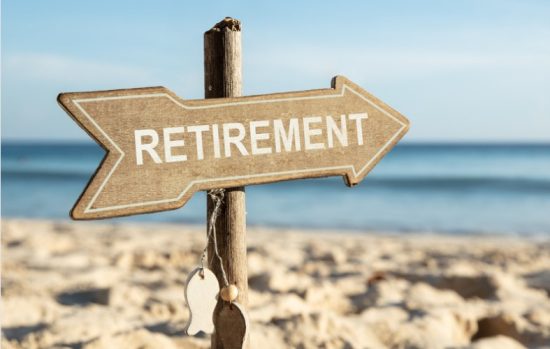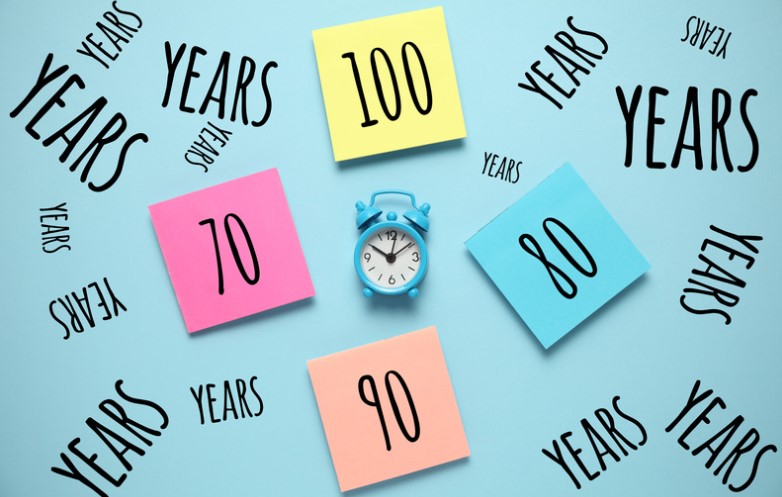Are you curious about the retirement age in Canada? As we journey through life, one question that often arises is when can we finally bid farewell to our careers and enjoy the sweet fruits of retirement? Well, my friend, you’re in luck! In this complete guide, we will unravel the mysteries surrounding the retirement age in Canada.
From understanding the official retirement age for CPP and OAS to discovering ways to maximize your savings and even work after retiring – we’ve got it all covered. So grab a cup of coffee or tea, sit back, and let’s dive into this fascinating world of Canadian retirements!
What is the Retirement Age in Canada?

The retirement age in Canada is not a one-size-fits-all concept. Unlike some countries with fixed retirement ages, Canada offers flexibility when it comes to choosing the right time to retire. In general, the official retirement age for receiving full benefits from the Canada Pension Plan (CPP) and Old Age Security (OAS) is 65 years old.
However, it’s important to note that you can choose to take early or late retirement based on your circumstances. If you decide to retire before turning 65, you can start receiving CPP as early as age 60, but your monthly payments may be reduced. On the other hand, if you delay taking CPP until after 65, your monthly payments will increase by a certain percentage.
When it comes to OAS, you have even more flexibility. You are eligible to receive partial OAS benefits starting at age 65 and full benefits at age 67. However, if you choose to delay taking OAS beyond the age of eligibility (up until age 70), your monthly benefit amount will increase by a specified percentage.
The Canada Retirement Age for CPP and OAS
When it comes to retirement in Canada, understanding the eligibility age for retirement benefits is crucial. The two main programs that provide income support for retirees are the Canada Pension Plan (CPP) and Old Age Security (OAS). Let’s dive into the details.
For CPP, the standard age of eligibility is 65. However, you can choose to start receiving your CPP pension as early as age 60 with a reduction or delay it until age 70 with an increase. It’s important to note that if you decide to take your CPP before 65, your monthly benefit amount will be permanently reduced.
On the other hand, OAS has a different eligibility age. It is currently set at 65; however, it is possible to defer taking OAS for up to five years after reaching this age. By doing so, you can receive a higher monthly payment when you eventually start receiving OAS.
How Can You Avoid Having to Take Late Retirement?
One of the concerns that many individuals have as they approach retirement age is whether they will be able to retire when they want or if they will have to delay their retirement. Nobody wants to work longer than necessary, but sometimes circumstances dictate otherwise. However, there are steps you can take to avoid having to take a late retirement potentially.
- First and foremost, it is crucial to start saving money for your retirement early on. The sooner you begin setting aside funds for your future, the more time your money has to grow through compound interest. You can build a substantial nest egg over time by making consistent contributions each month.
- Another strategy is maximizing your income during your working years. This might mean taking advantage of opportunities for career advancement or pursuing additional education or certifications that can lead to higher-paying positions.
- Reducing unnecessary expenses and living within your means is another way to ensure financial security in retirement. By cutting back on non-essential expenditures and focusing on savings instead, you can better prepare yourself for retiring at the desired age.
- Diversifying your investments is also essential in avoiding late retirement. Putting all of your eggs in one basket carries significant risks; spreading out investments across various asset classes helps mitigate potential losses and provides greater growth opportunities.
Can You Work After the Retirement Age In Canada?

Many Canadians wonder if they can continue working after reaching retirement age. The answer is yes; you can still work even after you have reached the designated retirement age in Canada.
Working beyond the retirement age can provide several benefits. It allows individuals to stay active and engaged in their chosen profession or industry. It also provides an opportunity to continue earning income and contribute to one’s savings or pension plan. Moreover, working past retirement age may help individuals maintain a sense of purpose and fulfilment. It allows them to stay socially connected and engaged with colleagues and peers.
However, it is important to note that there are certain considerations when choosing to work after retirement. For example, if you receive Canada Pension Plan (CPP) benefits before reaching 65 years old but continue working, your CPP payments may be reduced based on your earnings.
Additionally, suppose you choose to delay receiving your Old Age Security (OAS) pension until after reaching 65 years old while continuing to work. In that case, your OAS benefits will increase by 0.6% per month for each month of deferral up until the age of 70.
Does the Gender Affect the Retirement Age in Canada?
When it comes to retirement, gender can play a role in determining the age at which individuals choose to retire. Traditionally, women have tended to retire earlier than men due to various factors such as caregiving responsibilities and lower average earnings.
However, there has been a shift towards equalizing retirement ages for both genders in recent years. The Canadian government recognizes that women are living longer and healthier lives and have made changes to ensure equality in retirement benefits.
The current retirement age for both men and women is 65 years old when it comes to receiving full benefits from the Canada Pension Plan (CPP) and Old Age Security (OAS). However, it’s important to note that individuals can choose to start receiving reduced CPP benefits as early as age 60 or delay them until age 70.
How to Maximize Your Retirement Savings?
Maximizing your retirement savings is crucial if you want to enjoy a comfortable and secure future. Here are some effective strategies to help you make the most of your retirement savings.
- Start early: One of the best ways to maximize your retirement savings is to start saving as early as possible. The power of compound interest can work wonders over time, so don’t delay!
- Contribute regularly: Consistency is key when it comes to building a robust retirement fund. Make regular contributions to your retirement accounts, whether it’s through employer-sponsored plans like RRSPs or on your own with TFSAs.
- Take advantage of employer matching: If your employer offers a matching contribution program, be sure to take full advantage of it! This essentially means free money towards your retirement savings.
- Diversify investments: Don’t put all your eggs in one basket when it comes to investing for retirement. Diversify across different asset classes like stocks, bonds, and real estate, which can help mitigate risks and potentially increase returns.
- Minimize fees: Pay attention to the fees associated with any investment products you choose for your retirement savings. High fees can eat into your returns over time, so opt for low-cost options whenever possible.
- Monitor and adjust: Regularly review and reassess your investment portfolio as you approach retirement age. Making any necessary adjustments based on changing market conditions or personal circumstances is important.
By following these tips, you’ll be well on your way toward maximizing your retirement savings and securing a financially stable future.
Tips to Find the Right Time to Retire

Choosing the right time to retire is a decision that requires careful consideration. Here are some tips to help you determine when it’s the right time for you:
- Evaluate your financial situation: Assess your savings, investments, and any pension plans you may have. This will give you an idea of how much income you can expect in retirement.
- Consider your health: Take stock of your overall health and any potential medical expenses that may arise as you age. It’s important to ensure you’re financially prepared for healthcare costs.
- Think about your desired lifestyle: Consider what kind of retirement lifestyle you envision for yourself. Do you want to travel extensively or downsize and live modestly? Knowing this can help inform your decision on when to retire.
- Calculate social security benefits: Determine if there are any penalties or incentives associated with retiring at different ages and calculate how these factors will impact your social security benefits.
- Seek professional advice: Consult a financial advisor specializing in retirement planning. So if you’re playing the averages, delaying CPP is the wisest move.
Remember, finding the right time to retire is a highly personal decision that depends on various factors specific to each individual’s situation.
Conclusion
In conclusion, understanding the retirement age in Canada is not as complicated as it may seem. With a few basic pieces of information and an understanding of how Canadian pension plans work, you can better grasp when you should be expecting to retire and start planning for this important milestone in your life. Retirement age varies from province to province, so make sure you are familiar with the rules for where you live before beginning your preparations.
FAQs – Retirement Age in Canada
1. Do you get Canada pension at 65 or 70?
Even though 65 is the typical starting age for CPP payments, you can start getting your retirement pension as early as 60 or as late as 70. Although it may seem wise to begin receiving CPP as soon as you become eligible, you should be aware that doing so will result in a 7.2% reduction for each year you do so before turning 65.
2. How much money do you need to retire at 55 in Canada?
Generally speaking, you should replace between 70 and 80 percent of your yearly pre-retirement income. Accordingly, if your yearly income is $100,000, your retirement income goal should be at least $70,000. Your expenses are expected to decrease after retirement. Therefore, 70-80% of your pre-retirement wage should be adequate.
3. Should I collect CPP at 60 if I am still working?
For instance, if you begin receiving CPP at age 60 and do not live past age 69, you will be financially better off. The ideal age to begin CPP is 69 if you live to be 85. To put things in perspective, a 60-year-old Canadian can anticipate living another 25 years on average. So if you’re playing the averages, delaying CPP is the wisest move.










